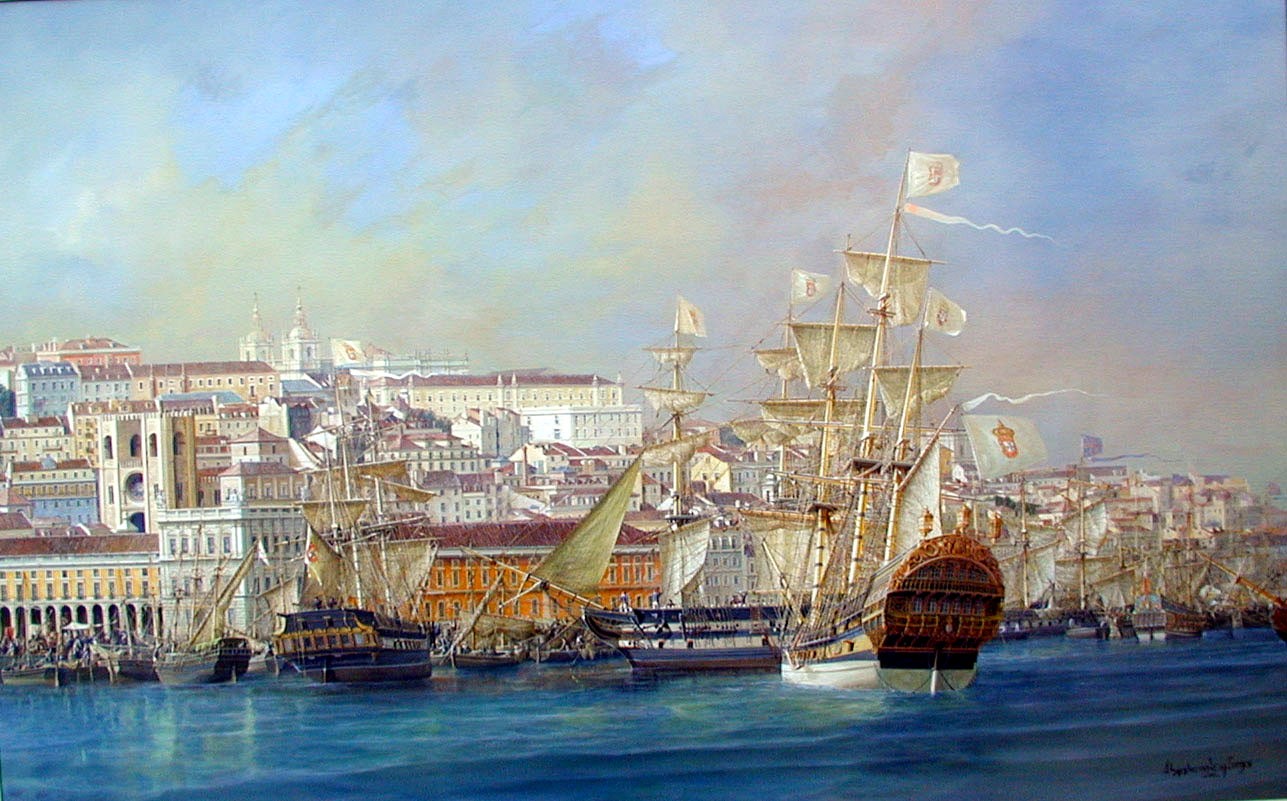On November 29, 1807, the long journey of the Portuguese royal family to Brazil began. A total of around 14 ships carrying 15,000 people departed from Portugal. The vessels were escorted by English ships along the way.

The entire Portuguese court was forced to leave Portugal due to Napoleon Bonaparte’s dominance in Europe. He aimed to conquer the entire continent but couldn’t overcome the military forces and ships of England. As an economic and political measure, Napoleon ordered the Continental Blockade, which prevented all European countries from trading with England.
This order left the heir to the Portuguese crown, Dom João, in a delicate situation since Portugal and England were long-standing allies. Another option was to confront the French army and risk invasion. The solution, with the help of the English, was to bring the Portuguese court to Brazil. And that’s what happened, with a long journey across the ocean under the protection of the English naval force.
It was only on January 22, 1808, that the Portuguese royal family arrived in Brazil, off the coast of Bahia. However, the royal entourage only disembarked on the 24th, at five o’clock in the afternoon, in a grand ceremony. After Salvador, the entourage headed to Rio de Janeiro on March 8, making the city the permanent residence of the Portuguese court. With the arrival of the royal family, several changes occurred in the colony: the opening of Brazilian ports, the establishment of the Bank of Brazil and the Mint, the creation of a newspaper, as well as cultural and educational improvements.

Matheus Araújo
Matheus Araújo is the founder and editor of Brazilian History. Born in Rio de Janeiro and holding a degree in Advertising and Marketing, his passion for history led him to enroll at the Federal University of the State of Rio de Janeiro, where he is currently pursuing a degree in History Education.
